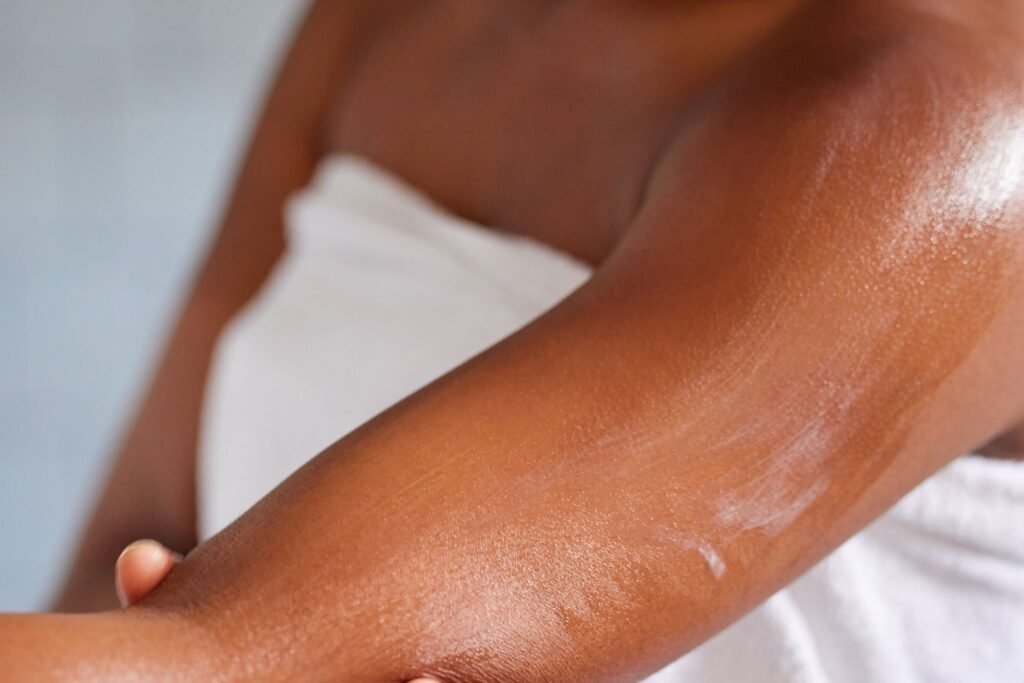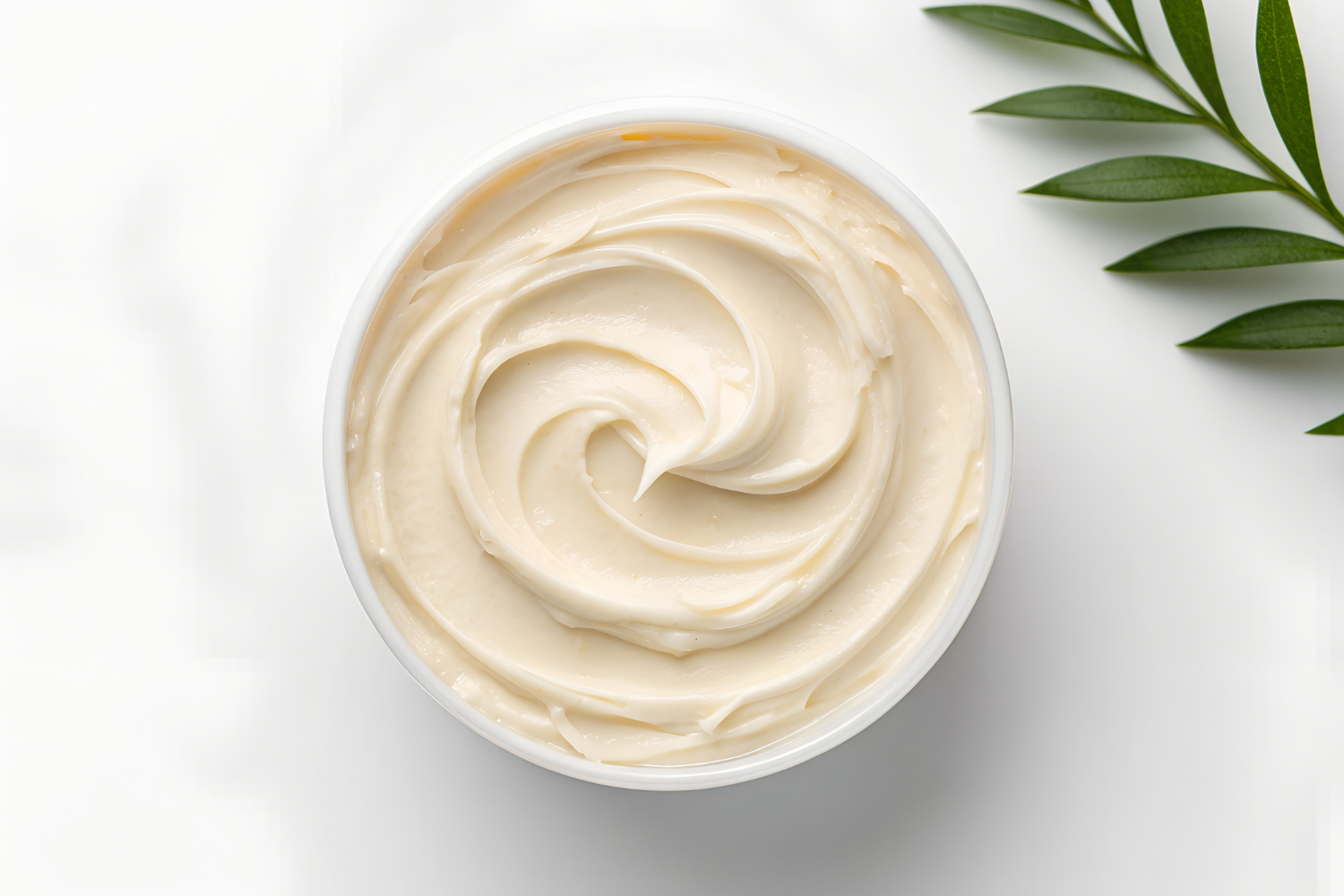Discover the truth about skincare without chemicals and why choosing skincare without phenoxyethanol, non-comedogenic hydrating skincare, skincare without water, and skincare to reduce pores can transform your skin.
The Clean Beauty Awakening
This shift is not about fear-mongering. It’s about trust, trusting in the products that we are putting onto our skin. Many people today want skincare without chemicals or synthetics like phenoxyethanol, or skincare without water (which actually dilutes formulas), and actually want products that are hydrating, non-comedogenic, and are genuinely good for your long-term skin health.
But here’s the big question: Is skincare without chemicals even possible? Let’s dive into some basic science, and look at the story behind this movement.
What Does “Skincare Without Chemicals” Really Mean?
Technically speaking, everything, water, air, plant oils is made of chemicals. So when we say “skincare without chemical chemicals,” we really mean:
- Skincare without synthetic preservatives or controversial additives (like phenoxyethanol, parabens, or sulphates).
- Instead, formulas made from natural, organic, plant-based, or minimally processed ingredients.
- Non-toxic, skin-friendly alternatives that focus on nourishment and protection of the skin barrier from environmental stressors.
Let’s look at phenoxyethanol, a common preservative that has been linked to causing some irritation in sensitive skin types. Brands are turning to natural preservatives like fermented radish root filtrate or rosemary extract. Instead of water-heavy creams, many opt for skincare without water, using nutrient-dense botanical oils and butters as a base.
Choosing Skincare Without Phenoxyethanol
Phenoxyethanol is widely used in cosmetics as a preservative. Although it’s considered as safe in small amounts (up to 1% concentration), studies show that phenoxyethanol can cause contact dermatitis, eczema flare-ups, and allergic reactions in sensitive individuals.
A 2019 review in Toxicology Reports highlighted that prolonged exposure may disrupt the skin barrier for people with pre-existing sensitivities. For those prone to irritation, switching to skincare without phenoxyethanol is a simple way to reduce risk.
By choosing natural preservative systems, you’re not just avoiding potential irritants, you’re opting for formulas that often include added skin benefits, like antioxidant protection.
The Power of Hydrating & Non-Comedogenic Skincare
If you have oily, acne-prone, or combination skin, the fear of “clogged pores” is real. That’s where hydrating non-comedogenic formulas step in.
Why non-comedogenic matters:
- Non-comedogenic oils like jojoba, hemp seed, or rosehip oil) are oils that closely mimic the skin’s natural sebum, reducing the chance of breakouts.
- Compared to heavy mineral oil, non-comedogenic oils allow the skin to “breathe,” while still locking in hydration.
Studies have shown that hydrated skin has 70% better barrier recovery after irritation compared to that of dehydrated skin. Translation? The right non-comedogenic hydration doesn’t just make your skin glow, it helps it heal faster and become more resilient to daily stressors.
So, whether you’re using a whipped body butter, face, oil or balm, hydration is the cornerstone of clear, resilient skin.
Skincare Without Water: Why It’s Trending?
Up to 80% of most skincare products are made up of water? While water itself isn’t harmful, it dilutes the product and therefore requires stronger preservatives like phenoxyethanol to prevent bacterial growth, thus allowing the skincare product to have a longer shelf life.
But why are more of us choosing skincare without water? And opting for more nourishing butters and oil-based skincare for our bodies:
- 100% active ingredients (botanical oils, butters, extracts).
- Richer textures that deeply nourish.
- Longer-lasting hydration since oil and butters create a protective barrier.
By opting for a mango butter or shea butter base are your cleaner equivalent fillers, delivering vitamins like A, E, and essential fatty acids that actively repair skin. In contrast, a water-based cream may feel lighter but often contributes very little beyond light hydration.

Can Skincare Reduce Pores? The Honest Truth
Large pores are a common frustration, while no skincare can permanently “shrink” them. Did you know that pore sizes are genetic, and with the right formulas can make your pores look smaller.
Non-comedogenic hydration skincare can also prevent pores from becoming clogged and stretched.
Vitamin A and C rich oils like rosehip encourage skin turnover, keeping pores clear.
Antioxidants reduce oxidative stress that weakens pore walls.
A study found participants who used antioxidant-rich oils saw up to a 19% visible reduction in their pore size after 8 weeks. The study showed that with consistent use of a targeted natural skincare, pores can appear smoother and more refined.
Choosing Natural, Clean, Skincare has Its Emotional Benefits
Skincare is not just about appearance, it’s about how you feel:
After a long day, you shower the stresses of the day away, to your damp skin you apply a rich, hydrating body butter without water, with organic stress relieving essential oils like geranium and sweet orange.
After applying your butter, you instantly feel your dry patches melt away knowing you are using clean, organically sourced ingredients to do this – that’s got to feel right!
You look in the mirror and see a natural glow, without layers of makeup.
You feel confident knowing what’s touching your skin is as safe as what you put in your body.
That’s the heart of skincare without chemicals, peace of mind, self-care, and authenticity in a world full of pressure to look “perfect.”
Why Natural Skincare is Rising
The global natural skincare market was valued at $7.7 billion in 2022 and is projected to reach $12.3 billion by 2030. That’s a compound annual growth rate of 6.6%.
This growth isn’t just hype. It reflects a massive shift in consumer values, towards transparency, sustainability, and health. More people are wanting skincare that works with their skin, not against it.
Why This Matters for You
Choosing skincare without phenoxyethanol or skincare without water isn’t about following a trend. It’s about creating a skincare ritual that supports your skin, gives you confidence, and benefits your long-term health.
When you invest in skincare that prioritises purity and performance, you’re saying no to unnecessary fillers and yes to nourishing ingredients that actually deliver.
Ready to experience skincare that’s simple, effective, and chemical-free?
Explore SoleilRa’s Hydrate & Nourish Organic Face & Body Butter – crafted for women who want glowing, resilient skin without the pressure of perfection.
Have you tried it already? Share your glow with us! Tag #glowwithsoleilra #soleilraskinritual #lovesoleilra on Instagram or Pinterest and inspire others to embrace the power of natural organic skincare.
Join the Glow & Nourish Club today for early access, tips, and insider offers. Your best skin starts with a single step – make it a natural one.

